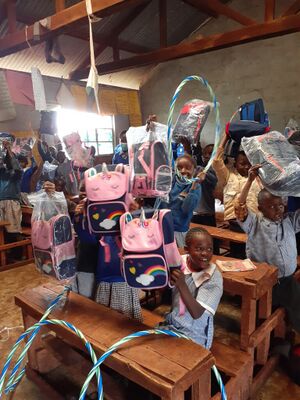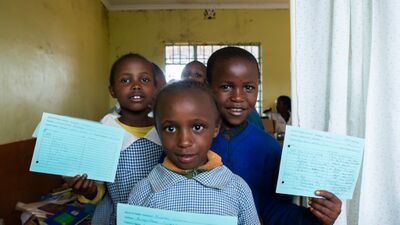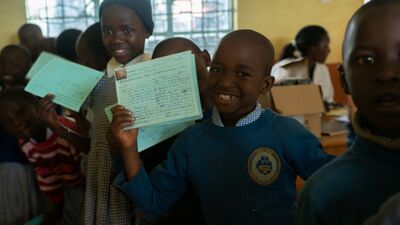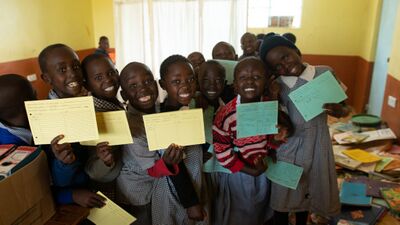PROVIDING HEALTHCARE TO CHILDREN IN RURAL KENYA: Difference between revisions
No edit summary |
(Updated problems) |
||
| Line 20: | Line 20: | ||
=Project Gallery= | =Project Gallery= | ||
|Problems= | |Problems=204245 | ||
|organization_id=57955 | |organization_id=57955 | ||
|Region=Kenya | |Region=Kenya | ||
Revision as of 14:49, 28 June 2023
| Organization | Kianda Foundation Educational Trust |
|---|---|
| Region | Kenya |
| Website | Website |
| ProjectLeader | Sylvia Wamalwa |
| Linked Problems & Solutions
|
|---|
The Children's Health Program (CHEP) brings medical care to children whose parents cannot afford healthcare at established health centres in Central Kenya. Children aged 4 to 14 years old have yearly checkups, are de-wormed 3 times a year, given vitamins and supplements, administered tests as required and treated. Importantly the program helps to ensure critical illnesses are caught and proper treatment given early to prevent serious complications in children or even death.
Challenge
In Tigoni area of Limuru, thousands of families live in extreme poverty, working in the tea and coffee plantations as casual laborers. The wages received from these jobs are meager. The situation is so dire that we often find a family of 8 squashed in a one-room house. For children living in such conditions lack of access to running water, decent sanitation or regular balanced meals make them prone to disease. Due to finances, ailments are often left unchecked leading to complications.
Long-Term Impact
Without access to medical attention provided by CHEP, many children would continue to suffer in silence, ultimately losing their lives. With the care they receive we find that our children under CHEP are less prone to fall ill, have more energy, are more engaged at school and are generally able to be more productive. These students tend to miss school less often and are able to keep up with their studies.
References
Additional Documentation
https://www.globalgiving.org//pfil/49094/projdoc.pdf
Project Gallery










